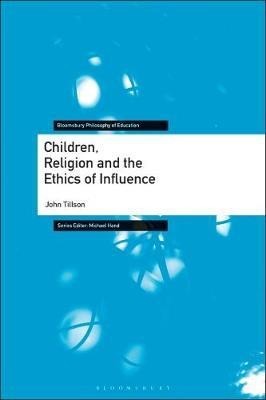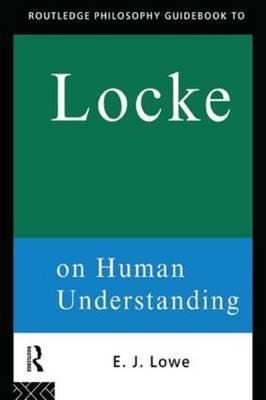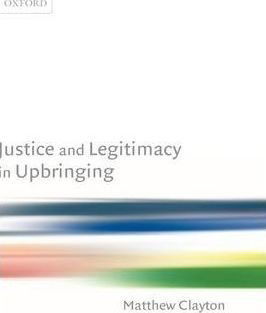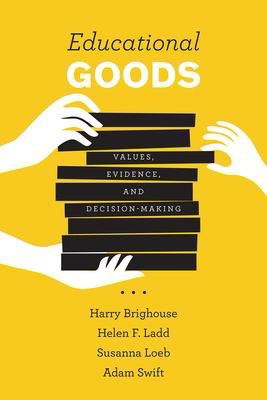Children, Religion and Influence in Philosophy of Education

Interview by Richard Marshall

'The disputed issue of what kind of intentional introduction children ought to have to religion, if any, centres around two questions. The first concerns how the responsibilities and permissions to make and provide for the introductions are to be distributed; the second concerns the manner, aims, and content of the introductions to be made and provided for.'
' I hold that what is bad is when the wellbeing of an intrinsically valuable entity, such as a human being, falls below a threshold of adequacy. I further contend that the person best positioned to ensure that this doesn’t happen is responsible for making sure that it doesn’t happen – an onus they cannot abdicate, but which falls simultaneously to the next best person if they drop the moral baton.'
'Singer says if it is within our power, and you say it’s too hard to do. One feature at play here could be that if it’s easily within our power, we straightforwardly ought to do it, if it’s only just within our power, we may excusably fail to do it (depending on the significance of the bad thing), and often have no duty to do it because it’s not consistently within our power to do.'
'In general, it looks like we can either engage people’s reason, or we can attempt to bypass or subvert it. That is, we can use rational means or non-rational means to influence.'
'I think that generally we enhance individuals’ as well as their community’s current and prospective wellbeing by aligning the formative tropes that they have with the ones they have most reason to have. In the epistemic case, usually they have most reason to believe what they have most epistemic reason to believe (the counter examples are the exception that prove the rule).'
'I should add that I don’t regard manipulation as always bypassing and subverting our rational capacities. Like Moti Gorin, I think that sometimes it can fully engage those.'
'I do not think there exist publicly available reasons that are sufficient to warrant belief in any religious propositions. That said, as I indicated in my answer to an earlier question, there may be privately available religious reasons which are sufficient to do this – so long as they cannot be most powerfully and economically explained away by defeaters.'
'It's true that philosophy departments don’t seem to recruit philosophers of education as such – any job advertisements that I see for us seems to be firmly in education departments, and those are quite rare by comparison. They mainly call for empirical researchers or those who are policy oriented. I’m afraid I can’t say what drives these recruitment calls.'
John Tillson is the sang-froid hoagy zep of analytic philosophy of education and senior lecturer in philosophy of education at Liverpool Hope University. He is the author of Children, Religion and the Ethics of Influence (Bloomsbury 2019), and his research interests can be captured under the expression 'the ethics of influence'. With Winston C. Thompson he is PI on the Pedagogies of Punishment Project. Here he discusses sources of moral responsibility, teaching of religion to children, the demandingness objection to utilitariainism, formative influences, restrictions and ethical constraints on how we can influence children, religious initiation, whether religion is special, whether religious belief is rational, whether an anthropologist would agree with his version of religion and belief, the role of deliberation, the role of knowledge and truth, and why philosophy of education should be heeded more.

3:16: What made you become a philosopher?
John Tillson: I had a Catholic upbringing and, while mulling over the religion I was initiated into, I found myself thinking about a wide range of philosophical topics. I found myself puzzled by things like whether I could be blameworthy for unbidden evil thoughts, what made it true that it was God I was praying to (and that my prayers weren’t misdirected), and whether God might have allowed me never to have existed given that my birth seemed historically precarious. Indeed, I found it arresting to try and contemplate God in general since I wasn’t quite sure what it was that I was supposed to be contemplating. Mum reports that she would often find me frowning into space, responding grumpily to interruptions. While I eventually I lost my religious beliefs, I suspect they were at least a catalyst for my broad philosophical interests.
The closest we got to philosophy at school was learning about the Church’s views on various ethical and moral questions – though with modest scope for discussion. Nonetheless, I enjoyed the occasional opportunities to debate the merits of answers to abstract and open-ended questions. The breakthrough came when my teachers were pitching their A-Level subjects, and one of them told us about a subject, ‘philosophy’, which seemed to explore the kind of things I had been pondering. Hearing that this was also a university subject I was thrilled and settled on becoming a university-based philosopher. Since I’d had limited access to universities, I didn’t realise how unlikely this was at the time. It’s quite miraculous that I managed to pull it off!
While philosophy of religion was my primary stated interest when I went up to university, it was really the whole range of philosophical topics as applied to religion that interested me. After graduating, I worked in a range of educational contexts and roles. One day I read an issue of Philosophy Now about philosophy of education and that lit the flame. The international philosophy of education community is welcoming and provides lots of opportunities for young scholars. Happily, as with philosophy of religion, I am able to bring resources from across philosophy to bear on understanding and evaluating educational policies, practices, and institutions.

3:16: You’ve written about the ethical responsibilities we have towards children, specifically regarding religion but of course several of the issues that arise in answering the question regarding religion also arise in other domains too. So, what are the sources of ethical responsibility that you think we should adhere to?
JT: The disputed issue of what kind of intentional introduction children ought to have to religion, if any, centres around two questions. The first concerns how the responsibilities and permissions to make and provide for the introductions are to be distributed; the second concerns the manner, aims, and content of the introductions to be made and provided for. Making progress with both questions sent me looking for what I called ‘sources of moral responsibility’. Before we get to these, perhaps we should start by unpacking the ‘we’ in your question. One bit of common ground is that different people have different responsibilities to and for different children. Parents, teachers, and other caring professionals are thought to have paternalistic duties to the individual children under their care, and somewhat different duties to adults under their care – less and fewer paternalistic duties, for instance. Outside these caring relationships with particular children, as members of the wider community, it is commonly thought that we have responsibilities to and for children in general, and that these differ from those we have to people in general.
One way to start answering the question of who owes what to which children starts by looking at the social roles that actors occupy (the role of parent, teacher or doctor, say) and asks what the duties of the role involve. It might emphasize the relevance of a voluntary dimension in entering the social role and identify these factors as jointly comprising the source of the actor’s responsibilities. This seems unsatisfactory to me. To take an extreme example, it would be perverse to start by asking what an overseer owes the slaves under his watch in virtue of his voluntarily undertaking the role of overseer. Furthermore, parenthood is not always and unproblematically voluntary and if we lacked any caring professions or people willing to enter them, this would constitute a moral failure. A deeper set of questions bring us closer to the heart of things. These ask why such roles should exist, why they should have the content that they do (with their distinctive and protected permissions), and why anyone should be obliged to inhabit or attract people to enter the role, or obliged to protect and respond to the permissions associated with it. Answering these questions gives us an account of what I call the sources of moral responsibility.
In my book, Children, Religion and the Ethics of Influence (CREI), I accept Peter Singer’s principle from ‘Famine Affluence and Morality’, that “if it is in our power to prevent something bad from happening, without thereby sacrificing anything of comparable moral importance, we ought, morally, to do it”. Elaborating on this somewhat, I hold that what is bad is when the wellbeing of an intrinsically valuable entity, such as a human being, falls below a threshold of adequacy. I further contend that the person best positioned to ensure that this doesn’t happen is responsible for making sure that it doesn’t happen – an onus they cannot abdicate, but which falls simultaneously to the next best person if they drop the moral baton. It’s also bad when we fail to reach a standard of wellbeing that we could reach (even when this is above the threshold), but in a way that generates negative rather than positive duties.
I argued that this view can motivate the creation of a parental role: of some small number of persons who have oversight of and responsibility for ensuring in a child’s adequate general wellbeing until they are able to take responsibility for it themselves. I also argued that this view could ground the view that biological parents have apro tanto entitlement and responsibility for taking this role. At the same time I balanced this with the view that it is often in people’s interests to raise their biological children (i.e. their wellbeing can be diminished by being refused this role where they are capable of it) and so they can be entitled to assume the parental role (i.e. to be protected inhabiting that role), so long as it does not diminish the child’s wellbeing to below the adequacy threshold.I also argued that this view motivates the creation of various caring professions designed to ensure that children’s wellbeing does not dip below the adequacy threshold. The reason being that the knowledge and training needed to ensure this is unmanageable for people by and large and must be distributed across specialists. A duty is also generated on the wider community to generate, incentivise and facilitate various professions and roles to ensure wellbeing to an adequacy threshold.
How does this all map onto introductions to religion? Well, I take it that our lives go better for us so long as we have opportunities to make significant choices to direct our lives towards various good things.To the extent that others make choices on our behalf, this undermines a significant element of what our lives going well consists in. Where others make slightly better choices for us than we would, this does little to enhance our wellbeing by contrast with decisions we make ourselves. For this to be possible people must be accurately informed and able to acquire future information about the varyingly well-defined and discrete good things available to them and how to secure them. I also take it that it is (generally) good for us (constitutively and instrumentally) to have the truth, especially as it bears on our decisions about what good things to pursue. Quite generally it opens our range of valuable possibilities, improves the reliability of our capacity to pursue them, and improves the quality of our connection with the good things we pursue (i.e., we know what it is we are doing, and that it is good). Significant truth-deprivations diminish our wellbeing. It follows that we shouldn’t misinform or dubiously ‘inform’ (even when people are above the adequacy threshold), but we may have a positive duty to inform as well (up to the adequacy threshold).
If true or good, religion may represent a good course to pursue; if not, it may represent a distraction or worse. If a suite of beliefs is not highly probable, and uniquely so as compared to rival beliefs, initiates are at risk of adopting false beliefs, and incorrect attitudes and judgements. The fact that, as Taliaferro says, “religious traditions are so comprehensive and all-encompassing in their claims” compounds this risk. Further, it very plausibly comes at the further cost of collateral errant belief, attitude and judgement formation (i.e. beliefs formed on the basis of premises which don’t simply disappear when one later rejects the premises instrumental to their formation) and of making us slow to correct our beliefs in response to contrary evidence and argument. By initiating children into any but (at most) one religion, initiators initiate children into something false. But given that religions are so many and various and, largely, equally credible, it would be hard to tell whether initiators are initiating them into something correct; it follows that initiatory caution is to be practiced.
In sum, I thought that the sources of moral responsibility were simply the fact that welfare matters absolutely, is precarious, and that some can ensure this welfare better than others. I also thought it mattered how we were motivated and located this in our own wellbeing. Frustratingly, that leaves open the question of which things matter, and why, why some things count as harms, benefits and neither, and where the limit of a basic threshold of wellbeing is to be set and why there. I take it that we have a range of respects in which our lives can go better or worse (an objective list approach to wellbeing). One feature of the approach I took was that it tries to judge everything in terms of wellbeing. However, this is problematic if we regard people as having claims to self-determination which may sometimes conflict with their wellbeing: so, I can refuse life-saving surgery.
3:16: You agree with Singer when he says that “if it’s in our power to prevent something bad from happening without thereby sacrificing anything of comparable moral importance, then we should, morally, do it.” For me this is a great argument against morals because it requires us to be saints – it’s just too hard to do that. It’s also, like utilitarianism generally, incapable of cashing out the unit of utile it needs to cash out for it to be more than just empty – because of this utilitarianism doesn’t seem any more rational than religion to me. What’s your push-back against this familiar objection to the Singer ethical stance and utilitarianism generally – and how important is it for your argument to gain traction that Singer’s stance remains in place?
JT: Let’s consider the second half of your question first. You say that Singer’s principle, like utilitarianism generally, is incapable of cashing out the unit of utile it needs in order to have some content. Saying that we should prevent bad things from happening is compatible with any answer about which things are bad. That isn’t a fault of the principle, however. It just requires us to find extra resources for identifying which things are bad. The answer I gave to the question was that the diminution of individuals’ wellbeing was bad. We can make this more sophisticated. We could say that the diminution of opportunities for wellbeing is bad (since wellbeing is something that requires the participation of the person whose wellbeing is in question and we can’t always directly ensure people’s wellbeing). We could also say that the distribution of these opportunities can be fair or unfair, the latter being bad. We could also say that it is bad to overrule people’s choices concerning their own lives, or that it is worse to do harm than to allow harm, and so on.
On one interpretation, the principle is consequentialist: it says that if you prevent something bad from happening without sacrificing something of equal moral significance, you should. In that case, one totals up the net moral consequences of prevention versus non-prevention and acts, giving no elements lexical priority. So, at first blush, the Singerian might consider doing some level of harm to one person to prevent the same level of harm coming to two others. However, they might consider it to be especially bad to do harm, as opposed to preventing harm, in which case the prevention might be outweighed by something of more than equal moral significance. So, the principle is very schematic, and lacking in content to be sure, but that just means we need to identify the range of things we take to be bad.
Let’s move to the first half of your question. Of course, Singer doesn’t require us to sacrifice more than the level of badness that we prevent. Suppose Sam is walking by a pond and sees Dave drowning. Morally, must Sam walk in and save Dave at the cost of being late for class, feeling soggy all day and paying for her dry cleaning? ‘Yes’, we all reply. Singer’s principle has a welcome result in this case. Additionally, Singer’s principle does not require unlimited self-sacrifice. Morally, must the impoverished Sam give money to Dave who has lost that same amount of wealth, but has much more wealth than Sam anyway? ‘No’, we all reply. How about when things are more equal? Let’s vary the costs in the pond example. Morally, must Sam wade in and save Dave from water which is toxic to her but not to Dave (and which will kill her in in the next couple of days, but not Dave)? As soon as it’s us or them, we have no duty to save the other person. While we might think it’s heroic for Sam to save Dave, many of us are already inclined to say that it’s not wrong for her to refrain from action and preserve her own life. Singer’s principle has this intuitive consequence. However, utilitarianism already seems to lack the resources for describing the moral value of the heroic act and so does Singer’s principle. Suppose Sam were young and healthy, and Dave was quite elderly. Since Sam has longer to live and more potential for wellbeing over time, it would seem positively wrong for her to save Dave on a strict wellbeing maximising version of utilitarianism. But Singer’s principle is more nuanced: perhaps it would be bad for Sam not to be able to do something which negatively impacts only herself. Now, to complete the progression of cases, suppose Sam knows the cost of her walking in is contracting a disease that will mean losing her ability to walk for the rest of her life. Morally, must Sam save the drowning person? Many people think the answer is ‘no - not based on the information given’. Clearly Sam losing her ability to walk is not of equal significance to Dave’s life. However, few but the strict wellbeing-maximizing act-utilitarian would require that, morally, Sam save Dave.
I am inclined to allow for some kinds of preferential treatment of ourselves and those we are (permissibly) deeply attached to. For instance, for Sam to prefer the survival of herself or of her own child over that of another. This raises the question of what the discount rate is, and which kinds are permissible. One helpful thing to chip in is that, even in my book, I indicated there was a basic threshold of wellbeing that people should be entitled to have opportunities to reach. This gives us some guidance: Sam should prefer the interests of the other person’s child when her own child’s wellbeing already meets this adequacy threshold and the other persons’ child does not. However, this means that she may always prefer the wellbeing needs of her own child when both are above the threshold of adequacy (perhaps with some tempering to allow for the distinction between doing and allowing harm – i.e. she may not do harm to the other person’s child to raise the wellbeing of her own child). The adequacy threshold morally requires you to increase the wellbeing of others only at a cost to yourself up to the threshold beneath which your wellbeing is inadequate. We need to specify the adequacy threshold, and perhaps this varies across societies, and perhaps its cost varies as well. However, I am now inclined to revise my view to accommodate more egalitarian commitments for distributions above the adequacy threshold.
Singer says if it is within our power, and you say it’s too hard to do. One feature at play here could be that if it’s easily within our power, we straightforwardly ought to do it, if it’s only just within our power, we may excusably fail to do it (depending on the significance of the bad thing), and often have no duty to do it because it’s not consistently within our power to do. In further elaborating answers to these questions, we should distinguish between the permissible and the excusable: perhaps morally we must act in some ways, but when we fail to, we can be excused due to psychological difficulties of acting as we must. I am inclined to say that we may excusably fail morally. All the same we should create infrastructures that lead us to avoid failure and remove the conditions that make our moral failures excusable. We should also discern between degrees of moral failure and note that some moral failures are unremarkable and not hugely blameworthy. It may also help for me to say, by way of blame, that I prefer views on which we simply say: you didn’t do enough, with a view to supporting one another to do enough next time.
One thing I rather like about the principle is that it doesn’t specify any particular subset of bad outcomes as being ones that we have moral reason prevent. So perhaps if we can stop something aesthetically bad from happening without sacrificing something of equal moral importance, then morally we ought to. Suppose Dave was in the process of making a film of negative aesthetic value (i.e. not only is it suboptimal, but it’s worse than if it didn’t exist at all – think of, The Happening, or Mario Bros). On the letter of Singer’s principle, Sam has moral reason to stop Dave from completing this film. Dave has the same reasons not to make the film, but he is oblivious. However, Sam’s intervention might come at certain moral costs that always take priority over his (ultimately moral) aesthetic preventative duties. Perhaps the cost is Dave’s entitlement to creative expression. Now notice that the principle says only that, morally, we should act to prevent bad outcomes. This leaves open the possibility that there are non-moral considerations that – all things considered – trump moral reasons. So perhaps Sam has aesthetic reasons to prevent the existence of the terrible film. If the work is so catastrophically aesthetically bad (like Show Girls or Cloud Atlas), that it would be worse – all things considered – to allow the film to exist than to interfere with its production, then all things considered and contra moral reasons, Sam ought to stop it. This sounds hugely implausible, and I don’t really see much prospect of non-moral considerations trumping moral considerations.
And what’s the most general content of ethical responsibility?
- we intend to prevent people attaining an adequate level of wellbeing or to diminish their wellbeing (to harm them),
- we fail to intend to enable people to reach an adequate level of wellbeing (to ensure a basic benefit) or to prevent harm, where we are the best placed to ensure that benefit,
- when we risk preventing people reaching an adequate level of wellbeing or harm them more generally, whether
- unknowingly, but negligently – i.e. when we should know better,
- knowingly, but regardless.
This looks most plausible when presented only as an account of things made wrong by harm. However, there are things which are wrong which are not made wrong by the prospect of harm. I acknowledged this to some degree already, since we may intend to do harm when we have no prospect of doing harm. (It seems wrong to try and kill someone with a gun one doesn’t know to be empty.) Still, I’ve since decided that it is not even adequate as an account of wrongful harm. Let’s start with non-harm related wrongs. As I have already noted, self-determination seems to matter independently of wellbeing (and may sometimes conflict with wellbeing in ways that trump it – as when I refuse surgery that would save my life any obligation on the part of the would-be surgeon to secure my wellbeing is removed and an obligation not to is created). I had originally attempted to nest self-determination within wellbeing, suggesting that a lack of scope to control what benefits we accept counts as a harmful diminishment of our wellbeing. However, the surgery example makes this seem implausible. Furthermore, we may incur additional responsibilities because of our actions (it can be wrong not to do things that we promise to do because we have promised to do them) or the actions of others (if someone helps us, we can owe them something we would not otherwise have owed them). We might also wrong people when we culpably think of them in the wrong way (e.g., as being less morally important than us), irrespective of whether we intend to harm or don’t intend to appropriately benefit them or have any prospect of harming or benefitting them. A further failing is the lack of scope for legitimate partiality – as discussed in answer to your last question. Finally, you’ll notice that a distributive value is inserted into my list of wrongs (that of adequate wellbeing). But as I say, I have since grown to think of inequalities above the threshold as also being bad and capable of making some actions wrong, in line with Singer’s principle. Bringing our discussion back to harms, plausibly there are occasions on which we may (or even should) intend harm. For instance, we should harm people when they pose a non-innocent threat to others when that harm is (a) all that could stop the threat and (b) is not disproportionate to the threat they pose.
Furthermore, it seems a bit permissive to say that we only do wrong when we intend to prevent people attaining an adequate level of wellbeing. Suppose someone’s life were improved by running regularly, and that running with a certain regularity ensured that they reached an adequate level of wellbeing. It seems perverse to say there is no wrong in intending to prevent someone from running more regularly than that. Finally, there are cases where choices are forced between the rules that I suggested, requiring principles of priority. The obvious way to see this is by considering trolley-like cases. I had said that we do wrong when weintendto diminish someone’s wellbeing (to do harm them), but we do wrong when we fail to prevent harm, where we are the best placed to ensure that benefit. Suppose I can save five lives by killing another person, it seems that I shouldn’t. It seems that there is a degree of priority to the rule against intending harm. The most general content of moral responsibility is indeed, ‘do no wrong’ but we can be more helpful in characterizing wrong-making features and my first stab in Children, Religion and the Ethics of Influenceneeds improving on in the ways indicated here.

3:16: You’ve written a great deal about the kinds of formative influences that we are subjected to as we grow up, and about the means by which others can influence us. Can you sketch for us what you see as the main ways we’re apt to be formatively influenced and how influencers do this?
JT: Ok.
- The degrees and kinds of their physical and mental powers
- The concepts which they understand (in the sense of grasping of their content)
- Those propositions which they understand
- The cognitive attitudes that they have to the propositions that they understand (such as belief and disbelief)
- The affective attitudes to those propositions and to other objects (such as hope that something be the case, of disgust by some particular thing)
This list is intended to be exhaustive and basic, with other composite formative tropes being built out of their elements. Let’s move on to the question of the means by which we can (rather than should) be formatively influenced. Farah Focquaert and Maartje Schermer nicely distinguish between ‘indirect’ interventions ‘targeting the mind’ and ‘direct’ interventions (also known as ‘neurointerventions’) ‘targeting the brain’:
indirect interventions aim to change thought patterns and behavior and thus rewire an individual’s brain structure and functioning, whereas direct interventions aim to change brain structure and function and thereby an individual’s thought patterns and behavior.
Direct interventions may include the introduction of chemicals and, perhaps, one day, neurosurgery. On the indirect intervention side, we can affect behaviouralinfluence by giving instructions or ‘making requests’, by changing the incentive structure or normative features of the situation, or by alerting people to reasons (prudential or otherwise). These might ultimately lead to the formation of formative tropes like attitudes and judgements. We can affect formative and behavioural influence by changing features of the subject’s choice architecture which they do not perceive as relevant to their choices. For instance, we can modulate the framing within which choices and judgements are made in ways that affect the outcome. This is what Andres Moles calls ‘nudging’. Thaler and Sunstein use the term for a motelier range of properties. Equally, we might introduce ‘reasons’ i.e., facts presented or likely to be perceived as reasons, which are not really reasons at all. We can affect behavioural and formative influence by adjusting people’s understanding or awareness of choice- and judgement-relevant facts (or facts that they are liable to see as choice- and judgement-relevant).
There are more responsive kinds of influence as well. We might fire off, or restrain the reactive attitudes, or wait for them to ‘cool off’. We might ‘make good’ the incentive-based reasons that existed in prospect (carrying out the relevant threats or promises). Some may think that ‘making good’ the incentive-based reasons that existed in prospect has the function of improving future deterrent and attractor effects on others. For if threats and promises were regularly not made good, they would cease to have any effect.
Making good these incentive-based reasons might affect formative tropes in rational or non-rational ways. Their having a rational formative influence would depend on the claim that punishment imparts non-incentive-based, choice-relevant knowledge and understanding. Their having a non-rational formative influence would depend on the claim that punishment conditions subjects to act within the limits it is designed to demarcate. In general, it looks like we can either engage people’s reason, or we can attempt to bypass or subvert it. That is, we can use rational means or non-rational means to influence. Rational means involve providing reasons for forming the formative tropes in question (this caninclude providing credible testimony, giving instructions, making requests and even creating and informing subjects about incentive-based reasons). Non-rational means cover all other methods (including pseudo-rational methods like providing information which merely seem to be reasons). Apart from this we might take preventative steps in anticipation of potential formative tropes and behaviours, by constraining their range of available actions and available information. Of course, all of these things can in principle be intended by influencers, merely foreseen or unintended and unforeseen (sometimes culpably so).
3:16: A push back against this is the idea of biological predisposition where no matter what influences we meet we still turn out a certain way. How damaging for your thesis would it be to find that most important things we believe and do, our traits and so on, are already hard-wired. Sure, if we’re born into an Anglophone community we’ll acquire English not German, but nevertheless all things being equal we’ll have to learn a language because that’s what we’re hard wired to do. If “English speaking community’ is an influence in the sense you’re talking about, isn’t that a very weak sense, too weak for what you need?
JT: My interest in the morality of influence depends entirely on the possibility that influencers can do otherwise, that they can have an influence and that some of those influences may satisfy or violate various moral claims of the parties involved. If none of those things were true, there would be no point in talking about the morality of influence. I take it that all these things are true, but of course the extent to which and respects in which they are true is a matter for further discussion in which philosophy must often defer to developments in the empirical sciences. To take the language learning example you give: suppose my partner and I socialised our child only in Klingon-speaking environments. We would, then, wrong our child by making the acquisition of a more common language very hard. We should do otherwise, partly because we can do otherwise, and because failing to do otherwise would limit our child’s range of valuable opportunities below a permissible threshold. Our range of potential influences is of course constrained by our biological nature, although we may be increasingly able to modulate these constraints with further scientific knowledge.
3:16: Do you think there are restrictions and ethical constraints on how we can influence children?
JT: The theory of moral influence that Ideveloped in Children, Religion, and the Ethics of Influence contends that for each prospective formative trope (e.g., belief, disposition or attitude) which a child could instantiate, influencers may ignore it, promote it, demote it or draw attention to it as something worthy of consideration to adopt.Some formative tropes are irrational to adopt, some are irrational not to adopt, and some are neither. I argued that for each prospective formative trope, it ought to be promoted, floated or demoted respectively, according to the following three sets of criteria, and where none of these apply, it might be fairly ignored:
Promoted: (a) It is momentous (i.e., it makes a significant difference if one fails to have it); (b) it might well not be adopted without intervention; (c) failing to have it is irrational.
Floated: (a) It is momentous; (b) it might well not be understood and rationally evaluated without intervention; (c) neither having nor failing to have it is irrational.
Demoted: (a) It is momentous; (b) it might well be adopted without intervention; (c) having it is irrational.
Why should we do this? For a few reasons. I think that generally we enhance individuals’ as well as their community’s current and prospective wellbeing by aligning the formative tropes that they have with the ones they have most reason to have. In the epistemic case, usually they have most reason to believe what they have most epistemic reason to believe (the counter examples are the exception that prove the rule). The truth (as that is best tracked by the state of existing evidence and argument) is both instrumental to and constitutive of wellbeing (that it is partly constitutive of wellbeing seems borne out by Robert Nozick’s famous experience machine though experiment), and also conducive to satisfying their moral duties. In the behaviour case, we often have overriding moral reason to act or refrain from certain courses of action – we discussed these sorts reason above. There are also non-moral reasons for having formative tropes, ones rooted in living a fulfilling life, such as being able to appreciate beauty or to identify and pursue goals which give our lives meaning. Some formative tropes or bundles of tropes are quite comprehensive, or fundamental – forming the basis of further tropes that will be adopted, and our reasons to ensure that these align with the state of reasons we have for forming formative tropes are stronger in proportion with the fundamentality of comprehensiveness of these tropes or trope bundles. (We’ll explore this more in my answer to your next question.) All of this provides us with a call to action (as well as sets constraints). We do wrong when we don’t float, demote or promote formative tropes. On the view I developed above, we do wrong when we don’t, as a community, provide opportunities for people to achieve a basic threshold of wellbeing. We do wrong as individuals, when we don’t act, when we are best situated to do so, to ensure this.
A further constraint which I don’t (yet, at any rate) endorse is that of Public Reasons Liberalism (PRL). On PRL, both government action and its justification must be acceptable to the politically reasonable people it effects. Politically reasonablecitizens (as opposed to perfectly informed and rational people) are those citizens committed to the values of freedom, equality, and society as a fair scheme of cooperation (or some other minimal standard). What this means is that if the rationality of adopting a formative trope is a matter of disagreement among politically reasonable citizens, then public bodies may not promote or demote it. On the broadest interpretations, PRL constrains the ways private institutions may interact with children and even the way parents interact with their children; on narrow interpretations it extends only to acts of government. This broadest interpretation is most fully developed and defended concerning matters of education and upbringing in the work of Matthew Clayton and David Stevens.

Coercive and manipulative actions might be thought of as a means of formative and behavioural influence and sometimes they are entirely appropriate. Any plausible theory of influence needs to integrate this fact and its plausible illustrations. While I take it that generally it is best to engage rather than bypass or subvert people’s rational capacities in effecting formative and behavioural influence, it is not an absolute constraint.For instance, where rational moral persuasion is impossible, provided moral knowledge is had, moral indoctrination might be obligatory. Consider the legion crimes which continue to be perpetrated in the name of the Islamic State of Iraq and the Levant (ISIL), and its Salafi form of jihadism. So as to end further such atrocities, if any security force had the means to convert ISIL’s members to reject their extremist worldview by using non-rational methods, they would plausibly be morally obliged to use them, where no sufficiently timely and efficacious rational alternative were available. Indeed, I think very plausibly, schemes of punishment and nudging and the like which supplement moral reasons should be established to help ensure that people act consistently with their moral requirements.
There are stricter constraints on the uses of punishment, hard treatment more generally, and blame to affect formative and behavioural influence. For instance, liability for punishment and blame turns on whether one has done wrong. Additionally, in the case of children, liability is plausibly restricted by children’s limited capacity to have known and been able to do better. Furthermore, it is generally thought that one’s standing to punish or to blame can be reduced by complicity in the wrong, by having committed similar wrongs, and by whether one was wronged. However, some think that (some) punishment and harsher forms of expressive blame can be used to help augment our knowledge and understanding of moral requirements and so have a role in moral formation of children as well as adults.
I should add that I don’t regard manipulation as always bypassing and subverting our rational capacities. Like Moti Gorin, I think that sometimes it can fully engage those. Consider the case of Mark and Mike. Mark likes to exercise control over who his colleagues are. He uses whatever methods are most efficacious to steer the constitution of his department. Often, he bypasses and subverts his colleagues’ reason by withholding information, drawing attention to the wrong considerations, and giving fallacious arguments. But sometimes it is the best reasons that are most efficacious.While Mark has never tried to influence Mike’s coming or going before, Mark suddenly wants Mike to go. Mark’s most promising strategy is to fully engage Mike’s reason: to let him know that there is another job that is perfect for him and that he is best qualified for. Mark tells Mike, Mike applies, gets the job and leaves. Mark still wrongfully manipulates Mike on account of his wrongful intentions and attitudes, despite engaging Mike’s reason. However, Mike has both been manipulated and made a fully informed and rational decision. What Mark should have done was something almost identical, something differentiated only by alternative intentions and motivations.
I said that the various available techniques for affecting influence can in principle be intended by influencers, merely foreseen, or unintended andunforeseen (and sometimes culpably so). What difference does this make? Well, we may think that some forms of influence are permissible by-products of pursuing ends other than influence, whether foreseen of unforeseen. Brighouse and Swift take this line when they argue that so long as they are in a position to rationally revise their beliefs later, parents are morally permitted to shape their children’s beliefs and values in religious ways in order to promote the good of close, loving familial bonds. They may do this by not stifling their views. However, permitting parents to shape their children’s formative tropes in the service of this good goes too far. There is a large gap between not stifling the expression of one’s own views and sharing experiences on the one hand, and concertedly cultivating a comprehensive set of epistemically controversial beliefs in another person. Whilst jointly engaging in activities such as playing cricket need not do much to generate beliefs, especially not epistemically controversial beliefs, one can at the very least refrain from deliberate initiation. Children have no prospect or need of forming beliefs about all or most epistemically controversial matters. Indeed, children develop rational capacities as they increase in age and can be persuaded through a combination of testimony, rational argument, and fair demonstration of the goodness or truth values and beliefs as and when this becomes appropriate. We might also teach children to tolerate going long periods without answers, and that sometimes having a profound sense of the mystery of (some) things is more epistemically sensible than rushing to conclusions to alleviate the mystery.To be sure, this all constitutes influence, but it is quite distinct from initiation into religious, or similarly comprehensive, epistemically controversial views.
3:16: Now religious initiation is something that you think should not be permitted by parents, teachers or others. Why not – and how is someone to get into a religion without someone initiating them? And if they’ve got to do it alone, then why doesn’t the ethical obligation not to initiate not apply?
JT: In my book, I argued that the second set of criteria discussed above obtain in the case of religious initiation, and that consequently, religious initiation in childhood is morally impermissible whether conducted by parents, teachers or others. That is, religious tropes are momentous, might well not be understood and rationally evaluated without intervention and neither having them nor failing to have them is irrational given the state of evidence and argument. They are momentous because, very plausibly, religious initiation in childhood comes at a high opportunity cost – that of being ready to recognize and respond to the truth and to avoid error. Further, adopting them plausibly comes at the further cost of collateral errant judgement. This feature is compounded by the fact that religious traditions are so comprehensive and all-encompassing in their claims.
People may become religious by being persuaded through their individual evaluation of the available evidence and argument which includes access to reasons which are private to them – some kinds of religious experience which they can attest to and which cannot be most powerfully and economically explained away by naturalistic defeaters. In adulthood, after a period of education in which such children have lived without religious beliefs (and without atheistic beliefs), people may yet be persuaded by others who simply share their own evaluations of the relevant evidence and argument. But concerted attempts to initiate children and indeed adults into religious belief lack sufficient epistemic foundations.
3:16: So, what is religion as you see it that makes it special in this sense?
JT: In CREI, I discussed how children ought to be influenced with respect to religions. On my view we should be concerned about religious initiation because of religious outlooks’ momentousness and rational credentials. Certain non-religious outlooks also have these features. Daniel C. Dennett’s and Jonathan Lowe’s philosophies are highly comprehensive and may equally be philosophies into which it is impermissible to initiate children (and indeed anyone, in line with my answer to your last question). A more apt title for my book might have been, Children, Comprehensive Initiation and the Morality of Influence.
3:16: And is religious belief rational according to you?
JT: If a child is taught to believe various religious propositions by their parent, it can be quite rational (i.e., evidence-sensitive) for the child to become a religious believer by taking their parents at their word. Even still, such persuasion is wrongful for the reasons I have outlined above. I do not think there exist publicly available reasons that are sufficient to warrant belief in any religious propositions. That said, as I indicated in an earlier answer, there may be privately available religious reasons which are sufficient to do this – so long as they cannot be most powerfully and economically explained away by defeaters.
3:16: So instead of religious initiation you suggest children be made aware of a range of religious and non-religious answers to the question of how we have the most reason to live, what we have most reason to value and how to treat one another. Why do you think this is the way to go?
JT: It seems to me that for a wide range of questions of how we have most reason to live, what we have most reason to value and how we ought to treat one another, a variety of religious and non-religious answers can be motivated by appreciation of the evidence and argument (including privately available religious reasons that I myself seem to lack). It also seems that the answers that we give to these questions are momentous: that if we fail to have the right answers, our lives will be significantly impoverished, or we may risk treating others wrongfully. Furthermore, children are not likely to understand and rationally evaluate these matters without support in doing so and it seems feasible and desirable that the conversation be an open and inclusive one that all are equipped to enter into to some extent as we grapple with them in our lives.

3:16: Your approach to religion and belief is very philosophically rational and you see religion as mirroring your approach, but an anthropologist looking at your ideas would wonder whether you’ve really grasped the phenomenon. Many religious people don’t have the need to justify what they’re doing in those terms. It’s more like fitting in and just living a life. And some religions are not doctrinally comprehensive – for example the Sufi Islamic religion of the high Atlas Mountains is best contrasted with the urban Islam of the city in terms of its near lack of doctrine. So, you seem to be addressing only a specific form of religion, one that mirrors philosophy! Is this a fair criticism and does it limit your conclusions applicability?
JT: It may be true that many religious people don’t have the felt need to justify their judgements and choices. However, judgements and choices – religious ones included – are apt to be right or wrong, good or bad, true or false. Again, if we fail to have the right answers, our lives may be significantly impoverished, and we may risk treating others wrongfully. Rational justification helps us to track the right, good and true. Justification takes the forms of giving reasons. While some people may not think they need to justify their judgments and choices, they may still have made false or bad judgements and choices. Perhaps Sufism is not doctrinally comprehensive, but one would expect that it is likely to be regarded as doctrinally fundamental – that some practices are likely to be regarded as significantly enriching practitioners’ lives, and that is a judgement that is amenable to rational justification.
3:16: If a criticism is that the character of religion you discuss is limited, some might argue that so is your view of how we live ethically. Most people don’t ask whether life’s worth it, calculate the ups and downs and then make a decision. Philosophers do that kind of thing – and utilitarians when it comes to ethics – but they’re doing philosophy when they do that and tend to stop philosophy when they leave the lecture theatre, as Hume points out. That’s why ethics professors are not more ethical than the rest of us. Are you making a religious education a philosophical education and imposing issues that are right for the philosophical classroom into a child’s life – and into the life of adults who are supposed to be looking after her?
JT: I take it that we are constantly forming and acting on judgments, often in unconsidered and unreflective ways. We could not spend all our time carefully considering every option, but it does not follow that there is no important room for deliberation. As I say – in moral and ethical matters, the costs of overlooked considerations can be impoverished lives and wrongful treatment. Almost all of us can spend some of our time identifying and appraising some options to some degree. Furthermore, we can often flag the conclusions of our deliberations for others where we think we have identified something significant. It can then be rational for others to accept our say so or evaluate our reasoning. This is the advantage of belonging to a community of knowers. It is also true that knowing what we have most reason to do does not always motivate us to act in that way, but it doesn’t follow that there is no important role to be played by knowing what we ought to do. I for one have been persuaded through philosophical arguments that I should not eat farmed animals, and usually I do not. I waver, but rational moral argument has changed my judgement and with it my more considered choices. Children are not likely to understand and rationally evaluate ethical and moral matters without support in doing so, yet it seems feasible and desirable that the conversation be an open and inclusive one that all are equipped to enter to some extent. Where which formative tropes we adopt is not momentous, and where we are unlikely to adopt irrational ones, we need not assist children in rationally evaluating these. However, matters of religion, ethics and morality do not fit that bill.
3:16: Is knowledge as important to your approach to teaching religion as reason. Reason, after all, only deals with validity – and we can infer valid conclusions without adhering to truth, unlike knowledge!
JT: I have distinguished between warranted belief from the point of view of human knowledge, and from the student’s point of view. I said that it is from the point of view of human knowledge that students are to be marked as correct or incorrect. However, what there is no reason to believe from the point of view of human knowledge, might conflict with what there is every reason to believe from their point of view. This view allows that in such cases, while students should be corrected, they can at the same time be given points for ‘working out’. I have also said that case of momentous propositions, imparting knowledge is just as important as cultivating rationality because the stakes are so high.
However, let me flag one concern. Knowledge is factive and implies truth, but propositions which we have had a great deal more reason to believe than disbelieve have turned out to be false (think of Newton’s physics). All the same, teachers should surely have taught for belief of those propositions when the evidence, from the point of view of the complete stock of publicly available human information, so decisively favoured them. One lesson we might draw is that it is not knowledge that is the central concept here but justified belief. I know that important epistemologists think otherwise (Williamson, for instance) and I have more thinking to do here – indeed, it is perhaps telling that I am inclined to say I know important epistemologists think otherwise. At any rate, certainly justified tropes are as important to my approach as rationality (and perhaps that ends up amounting to knowledge).
3:16: As a take home, you work in philosophy of education which is a thriving field and yet one that doesn’t seem to gain much traction with the rest of the philosophical fields. Why do you think this is – is it something to do with the subject matter itself or with hierarchies within the discipline that don’t see its value compared to logic, metaphysics or philosophy of mind, say? And what do you philosophers of education see yourselves as doing given that you seem much closer to policy formation than other branches of philosophy (difficult to see what metaphysical policies would be like, but it might be fun!)
JT: It's true that philosophy departments don’t seem to recruit philosophers of education as such – any job advertisements that I see for us seems to be firmly in education departments, and those are quite rare by comparison. They mainly call for empirical researchers or those who are policy oriented. I’m afraid I can’t say what drives these recruitment calls. I am very pleased to say that there are terrific philosophers working on education in philosophy, law and politics departments (although they usually wouldn’t identify as being philosophers of education). As you suggest, education and upbringing tend to be of interest to philosophers of law, politics and policy. Qua political institutions, the likes of Elizabeth Anderson, David Archard, Harry Brighouse, Matthew Clayton, Ben Colburn, Randell Curren, James Dwyer, Tim Fowler, Anca Gheaus, Amy Guttman, Colin Macleod, Thomas Nagel, Martha Nussbaum, Liam Shields, Adam Swift have all written about education and or upbringing. Some of these authors write about the moral status of children. Engaging more epistemic ideas, Heather Battaly, Adam J Carter, Quassim Cassam, Ian James Kidd, Duncan Pritchard, Harvey Siegal and Lani Watson have all written on educational epistemology and are housed in philosophy departments. Stephen Butterfield writes on the philosophy of children’s cognitive development, although he does not engage philosophers of education, I think we should do more to engage the ideas in his research. Additionally, there are highly reputable philosophers housed in education departments: Meira Levinson, Eamonn Callan, Paul Standish, John and Patricia White. I am also pleased to see philosophers of education gaining recognition in standard and recognizable venues the philosophical landscape. Examples include your interview with John White on here, the issue of Philosophy Now mentioned earlier, Randall Curren’s professorship at the Royal Institute of Philosophy, Michael Hand’s work published on Nigel Warburton’s platform, Aeon, the interview with Meira Levinson on Philosophy Bites, and articles in the Stanford Encyclopedia of Philosophy on, e.g., educational opportunity, civic education, philosophy of education, on children’s rights, childhood and philosophy for children.
You ask what non-policy ideas philosophy of education might engage, and I have indicated that there are questions of psycho-social ontology in my answer to the respects in which we can be influenced. There are also conceptual questions about the content of notions like education, indoctrination, learning and nearby concepts (the hey-day for those kinds of questions was in the sixties and seventies, although there was an unfortunate notion in some quarters that normative results could be justified by means of conceptual analysis alone). There are questions about what kinds of influence provide the influenced party with knowledge or at least justification for the beliefs, and more broadly, the formative tropes they adopt. Some have argued that insights from epistemologists and philosophers of mind could make a difference to what kind of teaching and learning strategies we should adopt – e.g., the extended mind hypothesis. Do I misremember when I say that you yourself made use of the philosophy of vagueness in the evaluation of grading policies for your PhD? I myself make use of all kinds of philosophy in my writing and have had a lot of fun drawing on resources in mind, epistemology and moral and political philosophy to argue that knowledge insertion – typified by the example of Neo downloading actionable knowledge into his mind via computer interface in the film, The Matrix– is metaphysically possible and desirable for the one who has knowledge inserted. I must admit that these projects begin to turn back into questions of policy. However, philosophical defensibility may contribute significantly to the all things considered defensibility of policy decisions.
3:16: And for the curious readers here at 3:16, are there five books you can recommend that will take us further into your philosophical world?
JT: Okay on the understanding that this is all about enabling people to engage with my philosophical world, I can suggest a few books that have been important to me. If people have read them, then we will be able to have a good old philosophical chinwag. One misgiving I have about the list is that I don’t get to list papers by Michael Hand that have been important to me. If anyone is wildly interested, they can always look at my bibliographies or contents pages to see who gets discussed a lot.

Problems of the Self(1973) by Bernard Williams

Locke on Human Understanding(1995) by Jonathan Lowe

Justice and Legitimacy in Upbringing(2006) by Matthew Clayton

Educational Goods: Values, Evidence, and Decision-Making (2018) by Harry Brighouse, Helen F. Ladd, Susanna Loeb, and Adam Swift

Wrongs and Crimes(2016) by Victor Tadros
I would recommend almost anything I have read by the authors whose books I mention, but I choose these because I found them inspiring and edifying at some point in my life. The Williams and Lowe books were known to me before I wrote my book; the others have only become known to me since then. This is rather unfortunate because their ideas are so material to my book, and I hope that I have begun to do more justice to them in subsequent papers. I love the way Williams integrates or at least passes easily between ideas in metaphysics, mind, ethics and political and moral theory. I could equally have suggested Nagel’s Mortal Questions for this reason. I love Lowe’s lucidity in giving empirically informed and philosophically inventive defences and revisions of Locke’s ideas. What we end up with is perhaps more Lowe on Human Understanding. The Brighouse et al. book is a nice place for philosophers to begin considering educational questions, and for educationalists to begin considering philosophical questions. A virtue of theirs is a sensitive attunement to the normative relevance of empirical research and enormous knowledge of it. I enjoy Clayton’s imaginative exploration of ideas and highly lucid writing. The battery of highly playful arguments that Tadros unleashes on his reader is a real treat.

ABOUT THE INTERVIEWER
Richard Marshall is biding his time.
Buy his second book here or his first book here to keep him biding!
End Times Series: the index of interviewees
End Time series: the themes